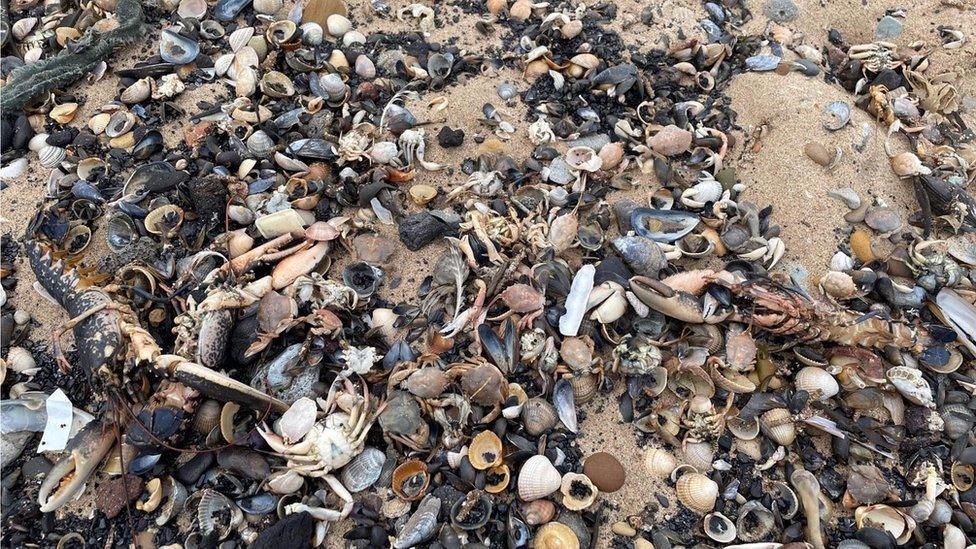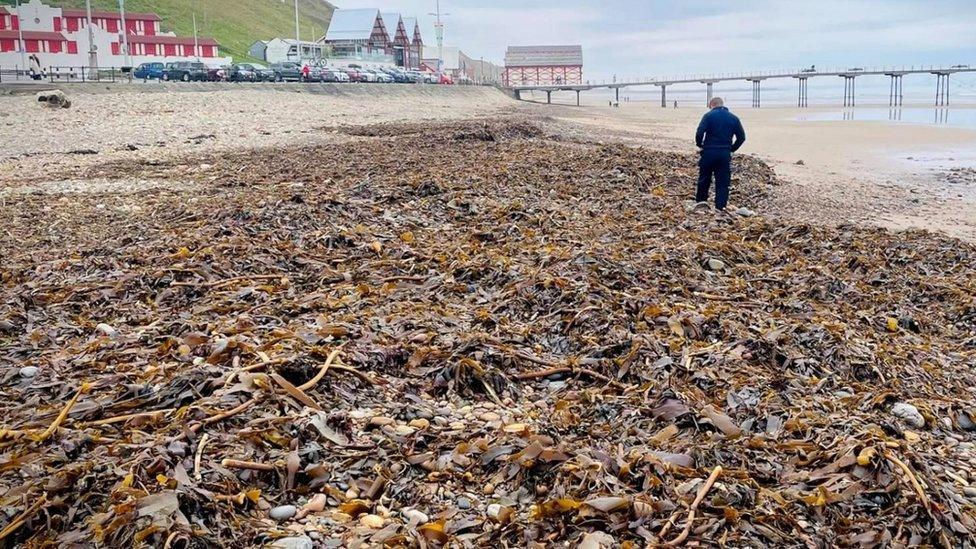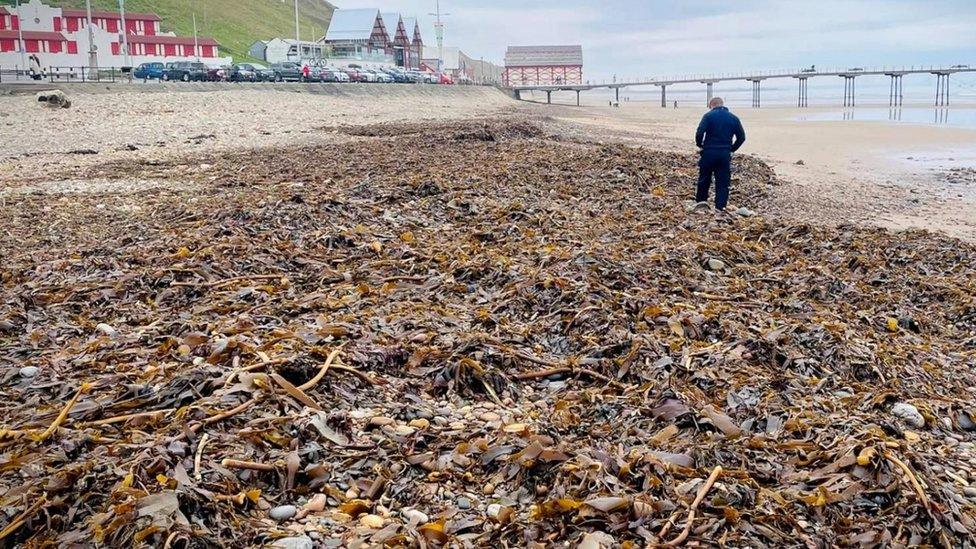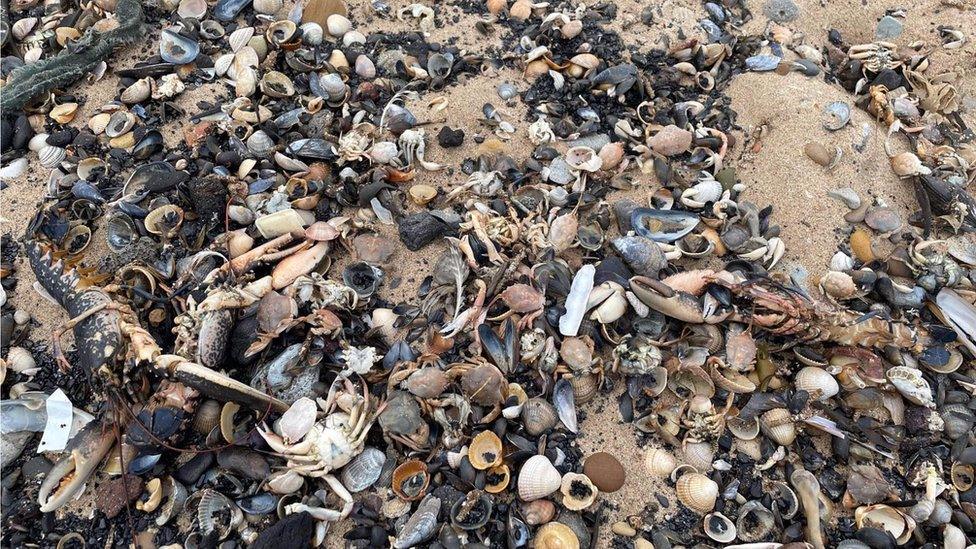Shellfish deaths: Campaigners call for River Tees dredging halt
- Published

Lobsters, crabs and other marine life have been found dead at several spots along the North East coast
Campaigners who blame dredging for a die-off of shellfish along the North East coast have called for a halt to the practice in the River Tees while investigations continue.
Thousands of crabs and lobsters have washed up at spots across Teesside and North Yorkshire since late last year.
Earlier this week it was announced a panel of independent experts would be set up to probe the cause.
The organisation behind the dredging says it began after the first deaths.
Following an initial investigation, the government said a naturally-occurring algal bloom was the most likely cause of the incidents but some fishermen believe dredging releases a chemical called pyridine.
'Have to pause'
Campaigner Sally Bunce told BBC Look North she welcomed the news of the independent panel's further assessment.
However, she said action was needed immediately as dredging was taking place in the River Tees as part of work to create a freeport at South Bank Quay.
"There's going to be an independent investigation into the effects of dredging on this die-off, but to me you can't continue doing what you're actually investigating," she said.
"You surely have to pause it while you investigate."
Joe Redfern, of the North East Fishing Collective, added: "We're not against the freeport, we're not against development.
"They could continue the dredging but take everything to landfill where it wouldn't be releasing toxins into the sea."
'Draw a line'
The South Tees Development Corporation said work had "complied with the highest legal standards and requirements laid down in licences and guidance".
A spokesperson added: "We welcome [the] government's work to establish an independent panel to assess the evidence surrounding the shellfish die-offs to finally draw a line under this matter.
"Environmental standards are important to us and, as we have throughout, we will always adhere to the rules and laws set by government agencies. We continue to follow all the standards set out by Defra and the Marine Management Organisation, who continue to rule out dredging as a likely cause of the crustacean deaths.
"Our only dredging to date, began on 1 September, almost a year after the die-off in October 2021, [and] had no issues."

Follow BBC North East & Cumbria on Twitter, external, Facebook, external and Instagram, external. Send your story ideas to northeastandcumbria@bbc.co.uk, external.
- Published15 November 2022

- Published1 November 2022

- Published28 October 2022
